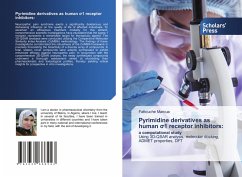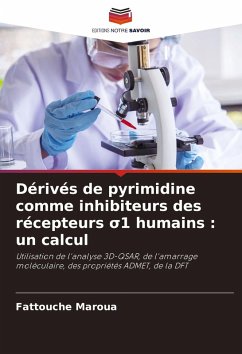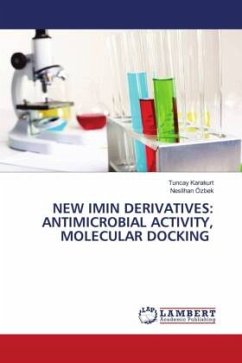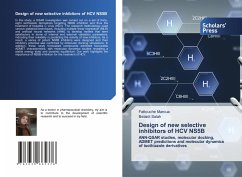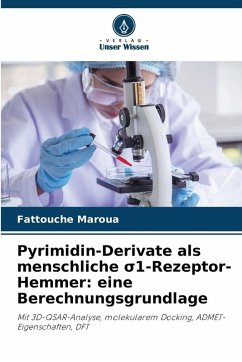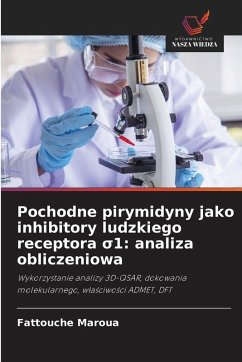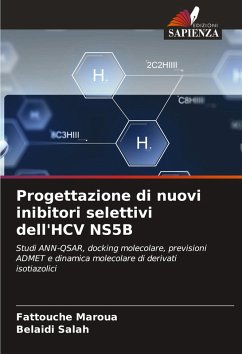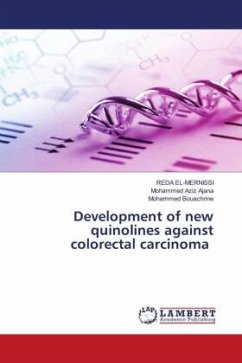
Development of new quinolines against colorectal carcinoma
Versandkostenfrei!
Versandfertig in 6-10 Tagen
29,99 €
inkl. MwSt.

PAYBACK Punkte
15 °P sammeln!
Colon cancer is abnormal cells that grow uncontrollably in an organ, resulting in abnormal tissue growth. One of the organs at risk for developing colon cancer cells is the large intestine, or rectum. The current research used computational methods to examine the potential of thirty quinoline compounds as tubulin inhibitors. The main objective of this book is to develop QSAR models to predict the anti-cancer activity of molecules by linking their molecular structures to experimental activities. The models were created using 3D-QSAR, molecular docking, simulation dynamics, and ADMET studies. Th...
Colon cancer is abnormal cells that grow uncontrollably in an organ, resulting in abnormal tissue growth. One of the organs at risk for developing colon cancer cells is the large intestine, or rectum. The current research used computational methods to examine the potential of thirty quinoline compounds as tubulin inhibitors. The main objective of this book is to develop QSAR models to predict the anti-cancer activity of molecules by linking their molecular structures to experimental activities. The models were created using 3D-QSAR, molecular docking, simulation dynamics, and ADMET studies. The results of the research aid researchers and the World Health Organization in identifying molecules that can be developed into effective anti-cancer agents with inhibitory activity.





